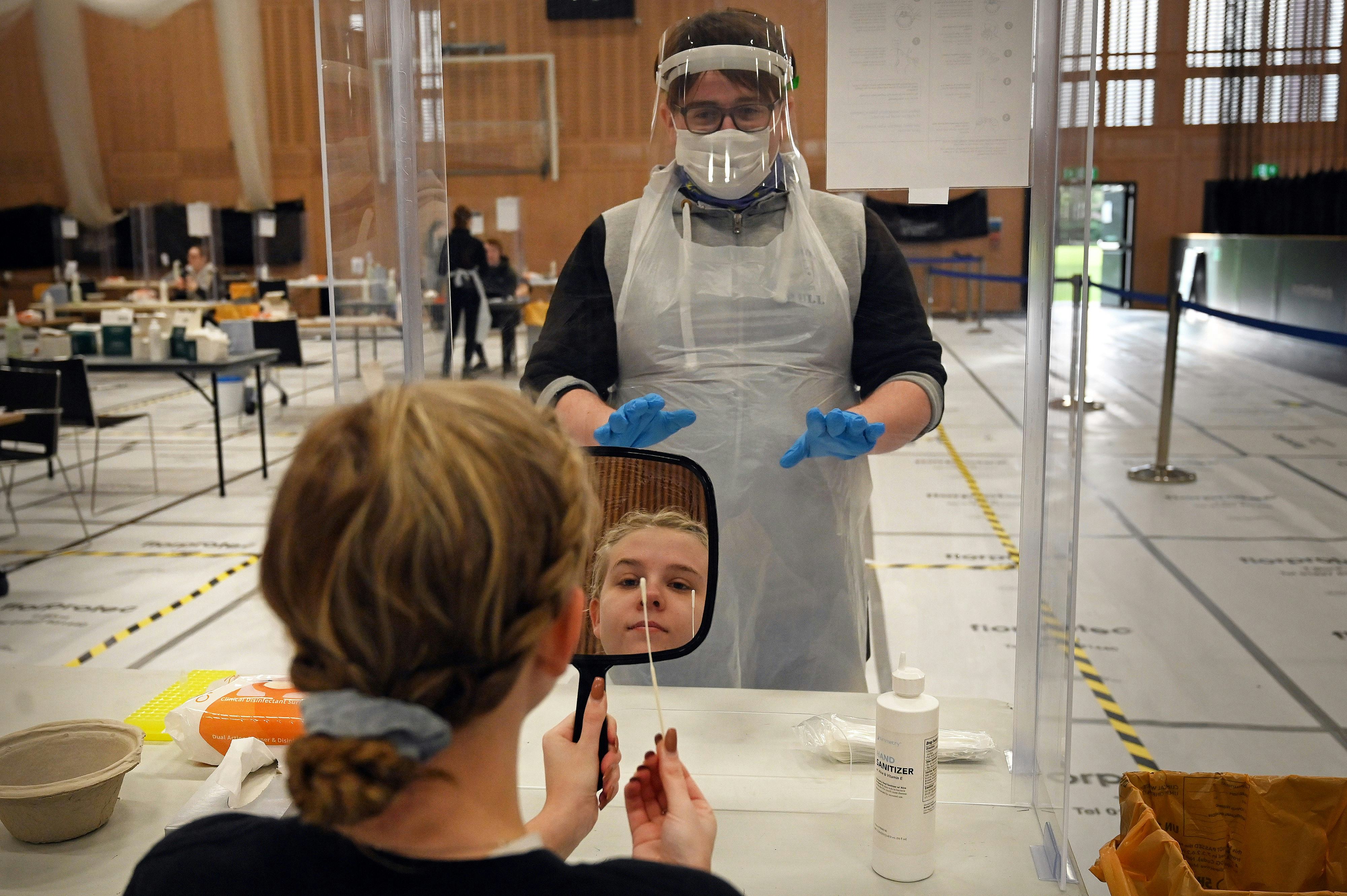Will Colleges Require A Coronavirus Vaccine In Fall 2021? The Rules Are Clear
As the ongoing coronavirus pandemic continues to tear through the country, many college students are still having to take extra precautions to slow the spread. As of March 2021, multiple pharmaceutical companies, such as Moderna, Pfizer, and Johnson and Johnson, have developed effective vaccines, and the Biden administration is pushing for all adults to be eligible for a vaccine by May 2021. So, with these factors in mind, many college students are likely wondering: Will colleges require a coronavirus vaccine in fall 2021? Here’s what we know.
Although school vaccination laws are determined on a state-by-state basis, many colleges and universities regularly require students to receive vaccines that protect against diseases like rubella, meningitis, and chicken pox, per the Centers for Disease Control and Prevention (CDC). Of course, each state includes its own approach to vaccine exemptions for religious and medical reasons. So, what makes the COVID-19 vaccine any different? That’s just the thing — it isn’t much different. Per CNBC, colleges and universities are allowed to require students be vaccinated against COVID-19, the same as any other transmissible illness.
However, schools aren’t likely to require COVID-19 vaccinations for students any time soon. As of late March 2021, vaccine supply is limited, and college students may be among the last in line to receive the vaccine, according to the CDC. On March 2, Yale University released a statement saying, "while at this time Yale community members are not required to get the vaccine, they are strongly encouraged to do so when eligible." Connecticut, where Yale is located, is expected to open vaccination to all adults age 16 and up on April 1. Harvard University mirrored Yale’s statement, writing on their site that "the vaccine is not mandatory at this time but highly recommended."
Per the CDC, as of March 25, there are four phases for vaccine rollout. There’s phase 1a, 1b, and 1c, which ensures the vaccination of health care and essential workers, long-term care facility residents, teachers, people aged 65 years and over, and people aged 16 to 64 years with underlying medical conditions. And then there’s phase 2, which ensures the vaccination of pretty much everyone else, including college students. "As vaccine availability increases, vaccination recommendations will expand to include more groups," the CDC reports.
So, unless college students meet any of the conditions mentioned in phase 1, they’re relatively low on the list of prioritized candidates. However, President Joe Biden announced in a March 11 statement that the White House will compel state, local, and tribal governments to make all adults in the United States eligible for COVID-19 vaccines no later than May 1. "Now, because of all the work we’ve done, we’ll have enough vaccine supply for all adults in America by the end of May. That’s months ahead of schedule," Biden said, noting how the federal government has already mobilized thousands of health care professionals to administer the vaccine. "You can drive up to a stadium or a large parking lot, get your shot, never leave your car, and drive home in less than an hour," he added.
According to the CDC, as of March 25 almost 49 million Americans have been fully vaccinated. However, this is only a 11.8% of the United States’ total population, which consists of over 328.2 million people. Experts say that to achieve herd immunity, "roughly 50 to 80% of the population will need to be [fully] vaccinated," per the Cleveland Clinic. White House Chief Medical Advisor Dr. Anthony Fauci said in a Feb. 18 interview with Pod Save America that vaccine distribution will most likely extend "[until] the end of summer."
Even if you’re fully vaccinated, the CDC still recommends wearing masks and social distancing in public places. So, while college campuses most likely won’t require your coronavirus vaccine records by the time fall 2021 rolls around, they’ll probably still require you to follow proper health and safety guidelines.
Source: Read Full Article
